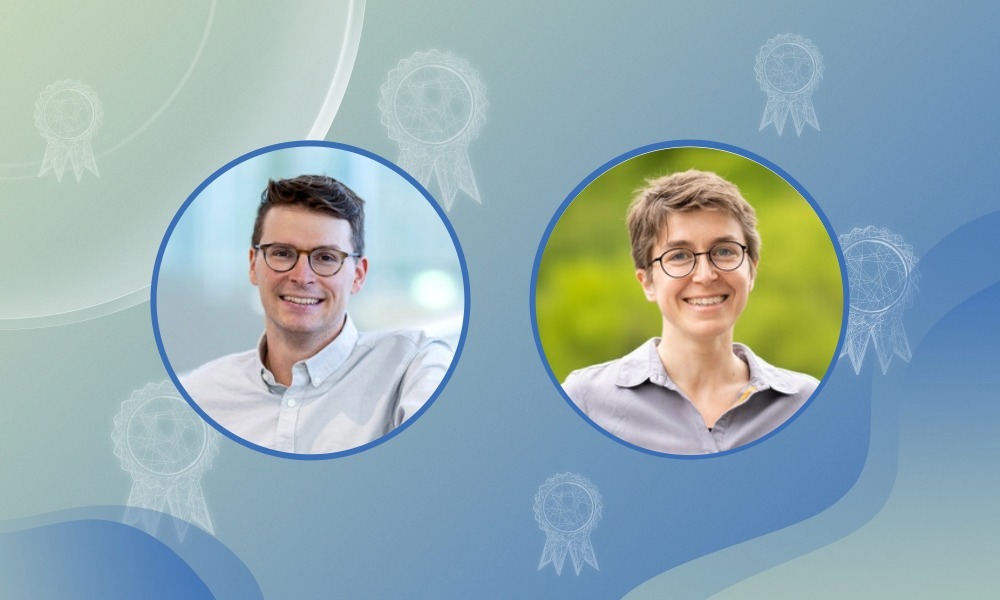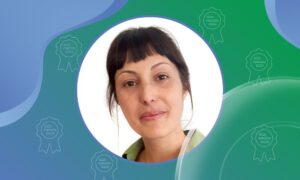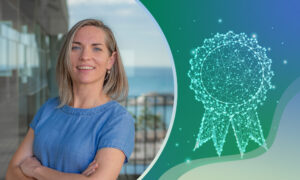
ERC Starting Grants awarded to two EMBL group leaders
Michael Dorrity and Anna Erzberger have received grants that will enable ambitious projects related to developmental timing and tissue self-organisation, respectively

The European Research Council (ERC) has awarded Michael Dorrity and Anna Erzberger, group leaders at EMBL Heidelberg, Starting Grants that will support projects focused on timing during embryonic development and geometry in self-organising tissues, respectively.
The ERC Starting Grants, worth approximately €1.5 million each, are part of the Horizon Europe programme. They are designed to support early-career researchers who have demonstrated excellence in their fields in taking their research to the next level through ambitious and innovative new projects.
Understanding the role of timing in development
Michael Dorrity’s team at EMBL studies how cells respond to environmental change in tightly regulated biological systems. The newly funded project, TIMERR, aims to build a better understanding of how timing during development contributes to reproducibly building an embryo in the face of environmental variation.
“Our project is using new genomic technologies to disentangle the temporal relationships between cells in a developing embryo,” explained Dorrity. “Do cells follow developmental trajectories synchronously? What molecular processes drive some cells to progress faster or slower?”
The results may have implications for understanding resilience during embryonic development and what goes wrong in the case of developmental defects.
“The Starting Grant is a strong vote of confidence from HorizonEU and from colleagues – this support enables and tremendously accelerates our lab’s research programme,” said Dorrity. “We’re excited for the years ahead!”
The importance of geometry in self-organisation
A theoretical physicist by training, Anna Erzberger, along with her team, studies the fundamental principles that govern how cells and tissues self-organise in living organisms. The ERC grant will fund a project called GOAL – Geometry-driven self-Organisation in Active Living matter – which will focus on the role of shape in cellular and tissue-level organisation.
“Our project explores how living matter can use its own shape to process information,” explained Erzberger. “By linking theoretical physics advances with concrete biological examples, we aim to uncover the principles that allow cells and tissues to self-organise and compute, thereby developing new concepts for adaptive materials.”
The project will involve collaborations with multiple EMBL researchers and alumni, including Takashi Hiiragi (Hubrecht University and Kyoto University, formerly EMBL Heidelberg), Takafumi Ichikawa (Kyoto University, formerly EMBL Heidelberg), Niccolo Banterle, Alba Diz-Muñoz, and Anna Kreshuk (EMBL Heidelberg), and Virginie Uhlmann (BioVisionCenter, University of Zurich, formerly EMBL-EBI).
Due to its highly interdisciplinary nature, the project was evaluated by a condensed matter physics panel at ERC. “I am thrilled by this recognition from the physics community,” said Erzberger. “This grant will not only provide key support for new directions, it is also a strong endorsement of the highly interdisciplinary way we approach our research. We’re excited to investigate how geometry shapes life across scales!”
Related Links


